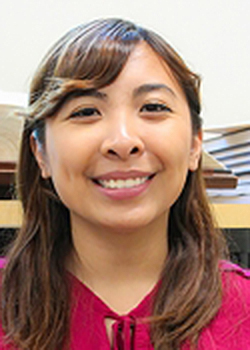Shaina Santa Cruz, a graduate student in the Public Health Graduate Program, was awarded the Central California Asian Pacific Women (CCAPW) scholarship.
The scholarship provides financial assistance to Asian and Pacific Islander (API) women pursuing higher education who are from Fresno, Kern, Kings, Madera, Merced, San Joaquin, Stanislaus or Tulare counties. Applications were evaluated based on, but not limited to, the following priorities: first-generation, academic achievement, leadership and contribution to the API community.
The CCAPW scholarship marks an important chapter in Santa Cruz’s journey. As the eldest daughter of Filipino immigrants, she said that it is incredibly meaningful to be honored by the CCAPW organization, which focuses on empowering Asian and Pacific Island women in their personal and professional development. The organization has supported API women in Central California for 40 years while cultivating a space for leadership and mentorship opportunities for the next generation of API leaders.

Santa Cruz’s research focuses on social inequalities that factor into health outcomes. As part of Professor Irene Yen’s HOPe Lab, she has worked on research examining social determinants of health, including education, political participation, and housing instability. Currently, she plans to study housing instability and adverse childhood experiences in rural areas, such as the Central Valley.
“Since I entered the Ph.D. program, Professor Yen has inspired and encouraged my growth as a woman of color,” she said. “Similarly, I hope to continue this growth through CCAPW and look forward to connecting with and learning from my new community.”
During her undergraduate program at California State University, Fullerton, Santa Cruz collaborated with professors in the areas of communicative disorders, higher education, cognitive science and health science, which she said helped develop her passion for improving population health through statistics. As a health educator, chair of a speech therapy organization, and researcher, she developed her knowledge of community health issues through program-evaluation work and hands-on service-learning experiences. Ultimately, she plans to earn a faculty position in a public health or epidemiology department at a state university and mentor the next generation of researchers.



